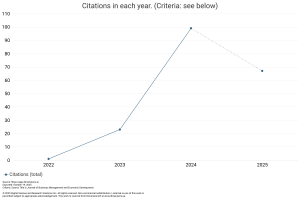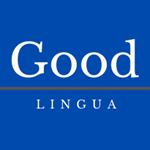Influence of Gender Diversity, Age, Education, and Work Experience Top Management Team on Intellectual Capital Performance: Empirical Study on Sector Companies Banking in 2021-2022
DOI:
https://doi.org/10.59653/jbmed.v2i01.381Keywords:
Gender Diversity, Top Management Team, Age, Education, Work Experience, Intellectual Capital PerformanceAbstract
The aim of this research is to analyze the influence of Gender Diversity, Age, Education and Work Experience on Intellectual Capital Performance. The sample used in this research consisted of 23 companies selected using purposive sampling. This research uses quantitative methods and the research object is banking companies listed on the Indonesian Stock Exchange for the 2021-2022 period. The research method used is Common Effect Model (CEM) panel data which is processed using the Eviews version 12 application. The data used is in the form of annual reports and financial reports for the period 2021-2022. This research uses multiple regression analysis. The variables in this research are Disclosure of Intellectual Capital (Y), Gender Diversity of the Female Top Management Team (X1), Age of the Top Management Team (X2), Education of the Top Management Team (X3) and Work Experience of the Top Management Team (X4). The results of the statistical analysis show that partially the Gender Diversity Top Management Team Female variable has a positive and insignificant effect on Intellectual Capital Performance. The age of the Top Management Team has a negative and significant effect on Intellectual Capital Performance. Then, Top Management Team education has a positive and insignificant effect on Intellectual Capital Performance. Lastly, Top Management Team experience has a negative and insignificant effect on Intellectual Capital Performance.
Downloads
References
Abidin, Zaenal., Akbar, Taufiq., Sudja, Ahmad H. (2022). Gender Diversity In Top Management Teams And Its Effects On National Commercial Banks' Performance, Scientific Bulletin – Economic Sciences Volume 21 No 2.
Aini, S. (2015). The Influence of the Characteristics of the Board of Commissioners and Directors on Intellectual Capital Disclosure. Padang State University Faculty of Economics: Thesis.
Ananto, Prabowo. (2010). The Influence of Corporate Governance on Disclosure of Intellectual Capital (Empirical Study in the Banking Sector which is listed on the Indonesian Stock Exchange. Sebelas Maret University: Thesis.
Arfan, Ikhsan. (2008). Human Resources Accounting First Edition. Yogyakarta: Graha Ilmu.
Arifah, Dista Amalia. (2012). The Influence of Corporate Governance Mechanisms Against Intellectual Capital Disclosure: In IC Companies Intensive, Indonesian Journal of Accounting and Finance Volume 9 Number 2, December 2012.
Bateman, T.S. And Scott A. Snell. (2008). Management. Edition 7-book 1. Translated by Chriswan Sungkono and Ali Akbar Yulianto. Jakarta: Salemba Four.
Christopher, S., Putri, MA, Jessica, J., Putri, AP, & Ovami, DC (2023). The Influence of Financial Ratios on Stock Returns in Real Estate and Property Companies Listed on the Indonesian Stock Exchange for the 2017-2021 Period. Journal of Economic, Business and Accounting (COSTING).
Daniri, Mas Achmad. (2005). Good Corporate Governance: Concept and Application in the Indonesian Context. Jakarta: PT Ray Indonesia.
Daniri, Mas Achmad. (2014). Lead By GCG. Jakarta: Indonesian Business Ideas.
Effendi, MA (2016). The Power of Good Corporate Governance: Theory and Implementation (2nded.). Jakarta: Salemba Empat.
Faza, M. Fardin and Hidayah, Erna. (2014). The Influence of Intellectual Capital On Profitability, Productivity and Company Value Banking Company Listed on the Indonesia Stock Exchange (BEI). EXECUTION. 8(2), 186-199.
Fitriani, A. (2012). The Influence of Corporate Governance Structure on Intellectual Capital Disclosure. University Faculty of Economics Diponegoro: Thesis
Ghozali, Imam. (2009). Multivariate Analysis Application with SPSS Program. Semarang: Diponegoro University Publishing Agency Semarang.
Hadi, Nor. (2011). Corporate Social Responsibility. Yogyakarta: Graha Ilmu.
Harahap, AP, & Silalahi, AD (2020). Factors that Influence the JAKARTA ISLAMIC INDEX (JII) Share Price on the Indonesian Stock Exchange. Journal of Economics, Business and Accounting (COSTING).
Hidayakh, E., Rahayu, S., & Gowon, M. (2020). Determinants of the Quality of Financial Reports (Empirical Study in the Regional Government of Jambi Province). Unja Journal of Accounting & Finance.
Karnadi, Erwin B. (2017). Eviews guide to basic econometrics. Jakarta: Grasindo.
Kartikasari, A. (2015). The Influence of Corporate Governance Attributes on Intellectual Capital Disclosure. faculty of Economics and Business Diponegoro University: Thesis.
Kesaulya, FA, & Febriany, N. (2019). The Influence of National Diversity of the Board of Directors and Ownership of Blockholders on Company Value: Study of Public Companies in Indonesia. Compartment: Scientific Journal of Accounting.
Maulia, ST, & Januarti, I. (2014). The influence of age, experience and education of the board of commissioners on the quality of financial reports. Semarang: Faculty of Economics and Business, Diponegoro University, Volume 3.
Nawawi, I. (2012). Knowledge Management: Theory and Applications in Realizing the Competitiveness of Business and Public Organizations. Bogor: Ghalia Indonesia.
Nisa, NI (2018). Analysis of the Influence of Gender and Company Characteristic Components on Intellectual Capital Disclosure in Manufacturing Companies. Yogyakarta: Indonesian Islamic University.
Nurhayati, I. (2010). The Influence of Board Diversity on Intellectual Capital Performance (Study of Manufacturing Companies Listed on the IDX). Surakarta: Sebelas Maret University.
Pulic, A. (1998). Measuring the Performance of Intellectual Capital in Knowledge Economy. Presented in 1998 at the 2nd McMaster World Congress on Measuring and Managing Intellectual Capital by the Austrian Team for Intellectual Potential.
Pulic, A. (2008). The Principle of Intellectual Capital Efficiency – A Brief Description. The Economistt. Economist Intelligence Unit.
Raharjanti, R. (2019). Gender Diversity, Ownership Structure, and Company Performance: Study of Banking Companies in Indonesia. Actual Journal of Applied Business Financial Accounting, Vol. 2, No. 2.
Rahman, T., & Solikhah, S. (2016). Analysis of the Effect of Job Rotation, Work Motivation and Job Satisfaction on Employee Performance in Sharia Microfinance Institutions. Muqtasid: Journal of Sharia Economics and Banking.
Ramadanty, AP, & Khomsiyah. (2022). The Influence of Intellectual Capital and Gender Diversity on Financial Distress is Moderated by Firm Size. Trisakti University, Volume 6 Number 4.
Rohmah, NW, & Meirini., D. (2023). The Influence of Company Size, Profitability, Managerial Ownership, and Gender Diversity on Profit Management. Compartment: Scientific Journal of Accounting.
Sugiyono. (2012). Business Research Methods. Bandung: Alphabeta.
Sugiyono. (2014). Quantitative, Qualitative, and R&D Research Methods. Bandung: Alphabet.
Sugiyono. (2016). Statistics for Research. Bandung: Alphabeta.
Surya, Indra and Ivan Yustiavanda. (2006). Implementation of Goof Corporate Governance: Setting aside Privileges for the Sake of Sustainability Business. Jakarta: Publisher of the Institute for Capital Market and Financial Studies Faculty of Law, University of Indonesia.
Sitorus, I. (2021). The Influence of Gender Diversity Top Management Team on the Profitability of Banks Registered with the OJK. Jakarta: Perbanas Institute.
Thoomaszen, SP, & Hidayat, W. (2020). Gender Diversity of the Board of Commissioners and Directors on Company Performance. Airlangga University (Vol. 30 No. 8).
Ulfa, RN, & Wiweko, H. (2022). Company Value and Factors That Influence It in the Consumer Goods Industry Sector Listed on the IDX for the 2015 – 2018 Period. Field of Economics, Business and Entrepreneurship.
Ulum, I. (2008). Intellectual Capital Performance of the Banking Sector in Indonesia. Journal of Accounting and Finance, Vol. 10, no. 2.
Ulum, I. (2009). Intellectual Capital. First Edition. Yogyakarta: Graha Ilmu.
Uzliawati, L. (2015). Board of Commissioners and Intellectual Capital Disclosure in Banking in Indonesia. Journal of Finance and Banking, Vol.19, No.2, 226–234.
Vulandari, Retno T., Rimawati, Elistya., & Lisyati. (2021). Statistics with the EViews application: a reference for research data processing. Yogyakarta : Gava Media.
Wardani, DK, & Andarini, DF (2016). The Influence of Fundamental Conditions, Inflation and Bank Indonesia Certificate Interest Rates on Stock Prices. Accounting journal.
Waryanto. (2010). The Influence of Good Corporate Governance (GCG) Characteristics Regarding the Extent of Corporate Social Responsibility Disclosure. Faculty Diponegoro University Economics: Thesis.
Wicaksono, D. (2020). Analysis of the Influence of Company Size and Independent Commissioners on Intellectual Capital Disclosure with Profitability as a Moderating Variable. As Syafiiah Islamic University, Vol. 3 No. 1.
Wihartono, Jeffery. (2013). The Influence of Seller Behavior Ethics on Loyalty Through Customer Satisfaction and Trust in Car Dealers Nissan Basuki Rahmat Surabaya. Management Student Scientific Journal, vol. 2, No. 2, Pg. 3.
Yanti, MY (2021). The Influence of Gender Diversity in the Top Management Team on the Financial Performance of General Banking in Indonesia in 2018 - 2019. Jakarta: Perbanas Institute.
Downloads
Published
How to Cite
Issue
Section
License
Copyright (c) 2023 Syiva Humairo, Zaenal Abidin

This work is licensed under a Creative Commons Attribution-ShareAlike 4.0 International License.
Authors who publish with this journal agree to the following terms:
- Authors retain copyright and grant the journal right of first publication with the work simultaneously licensed under a Creative Commons Attribution-ShareAlike that allows others to share the work with an acknowledgement of the work's authorship and initial publication in this journal.
- Authors are able to enter into separate, additional contractual arrangements for the non-exclusive distribution of the journal's published version of the work (e.g., post it to an institutional repository or publish it in a book), with an acknowledgement of its initial publication in this journal.
- Authors are permitted and encouraged to post their work online (e.g., in institutional repositories or on their website) prior to and during the submission process, as it can lead to productive exchanges, as well as earlier and greater citation of published work (See The Effect of Open Access).





























